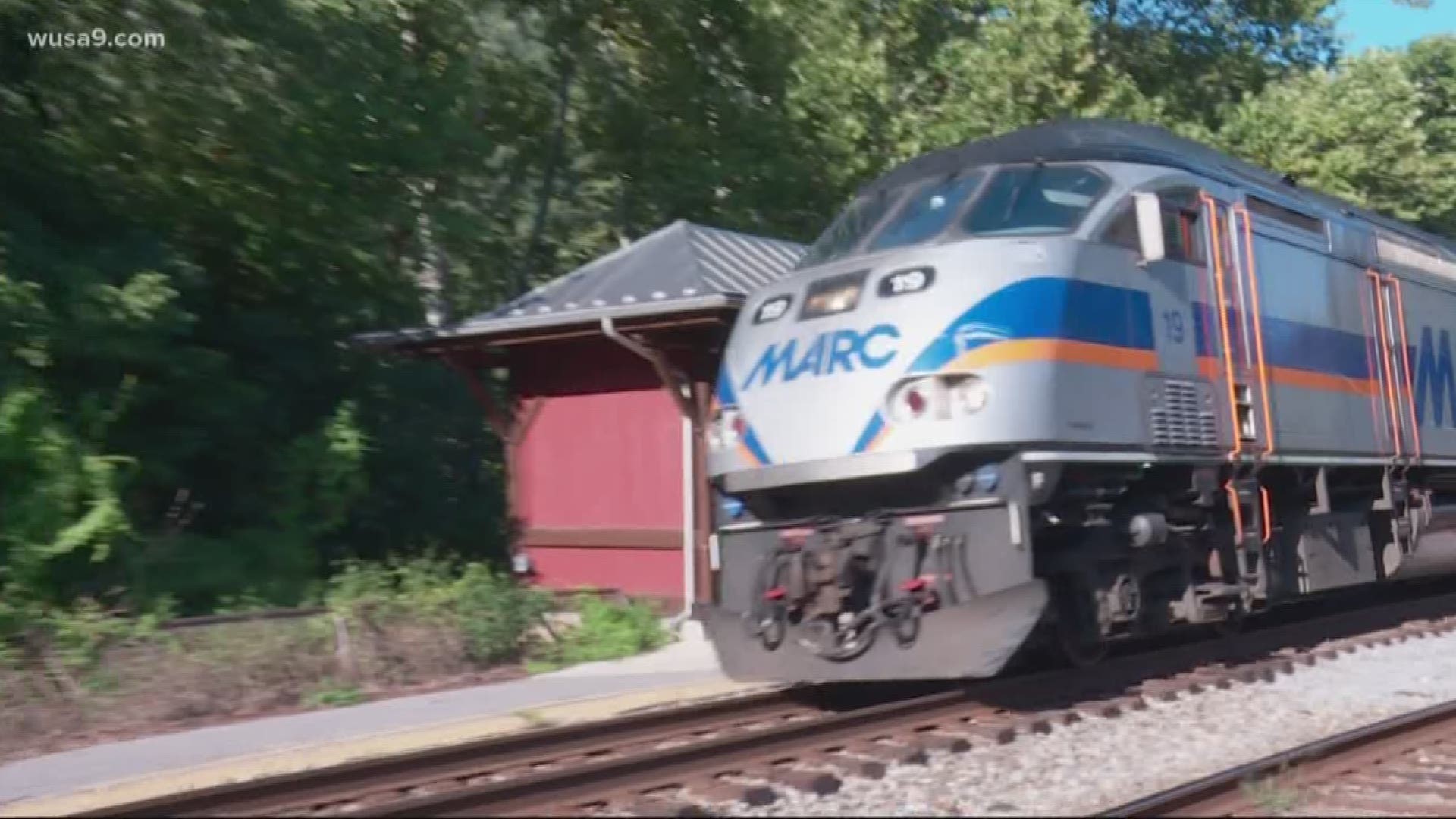HARPERS FERRY, W.Va. — Maryland taxpayers pay millions of dollars to fund a train service that benefits out-of-state workers. Now, service along that rail line could soon be reduced.
MDOT Maryland Transit Administration (MDOT MTA) announced last week plans to possibly cut back its MARC train service, on the Brunswick Line, in West Virginia, from six trains to two by Nov. 4.
Maryland currently operates trains that stop at West Virginia's Duffields, Harpers Ferry and Martinsburg stations in the state's eastern panhandle.
But, over the years, West Virginia has not paid Maryland much for the service.
According to West Virginia officials, the Mountaineer State has only provided Maryland funds for the MARC train twice since 1990.
In return, MDOT MTA said the service has cost Maryland millions of dollars over the years.
"The State of Maryland cannot continue to absorb the cost of transit services provided outside the State at the expense of Maryland taxpayers" read an Aug. 6 MDOT MTA statement.
The announcement comes after West Virginia failed to fully subsidize its MARC train service to the level that was previously requested by Maryland two years ago.
"In recent months, officials from Maryland and West Virginia engaged in discussion regarding levels of MARC train service, including the retention of existing service, which would require an allocation of about $3.5 million from West Virginia," said Brittany Marshall, director of media relations for MDOT MTA, in a statement.
Instead, West Virginia Senate Finance Chair Craig Blair said the state only decided to allocate $1.5 million toward the service last year. He added West Virginia appropriated another $1.1 million toward the MARC train this year.
Blair said his state is focused on providing funds for other issues.
"We're putting them into the infrastructure in the state with roads," he said. "Into our education system, things that have been overlooked for decades."
Blair also admits it would be hard to convince residents in Charleston or Huntington to pay millions of dollars for a train service that benefits West Virginians in the DC Metro.
"I like the MARC train," he said. "I think it's good for our economy in the Eastern Panhandle. But, is it affordable? No, not at that price."
But, for MARC riders in West Virginia, the proposed changes are worrisome.
Margie Yoe takes the train to her job everyday in Rockville, from Harpers Ferry, at 5:25 am. She said the easy accessibility to the line is part of the reason why she lives in Eastern Panhandle.
She said she is hopeful the proposed changes are not put in place.
"Please work with Maryland," asked Yoe. "But Maryland, can you please work with us to?"
West Virginia State Senator Patricia Rucker said it would be helpful if some local governments, like Berkeley and Jefferson Counties, were able to contribute some funding toward the rail service.
But, she said if MARC service is reduced in West Virginia, it will likely affect residents in other states.
"We have a bridge to cross that gets backed up (with traffic) already the way it currently is," she said. "So, any reduction of the MARC train service is going to ensure exacerbate traffic conditions here and all the way through Maryland and into Virginia."
Marylanders have a wide varying opinions on the matter.
Some locals say the state should not be funding service outside its borders.
"I believe that our money should be spent here, in the county where I live, or in the state of Maryland," said Maryland resident Gabriela Selva.
But, others worry a reduction in West Virginia MARC train service will hurt Maryland's economy.
"The border is immaterial because people go back and forth and the economies are connected and Marylanders benefits just as much as West Virginia," said Maryland Theo Caris.
Under MDOT MTA's proposal, service levels to stations in Maryland will not be affected from Brunswick south to the District.
Brunswick Line 874, 878, 879 and 881 will no longer service Martinsburg, Duffields or Harpers Ferry.
MDOT MTA plans to hold a public hearing on its proposed changes Saturday, Sept. 7 at 10 a.m. at the Charles Town, West Virginia library.

